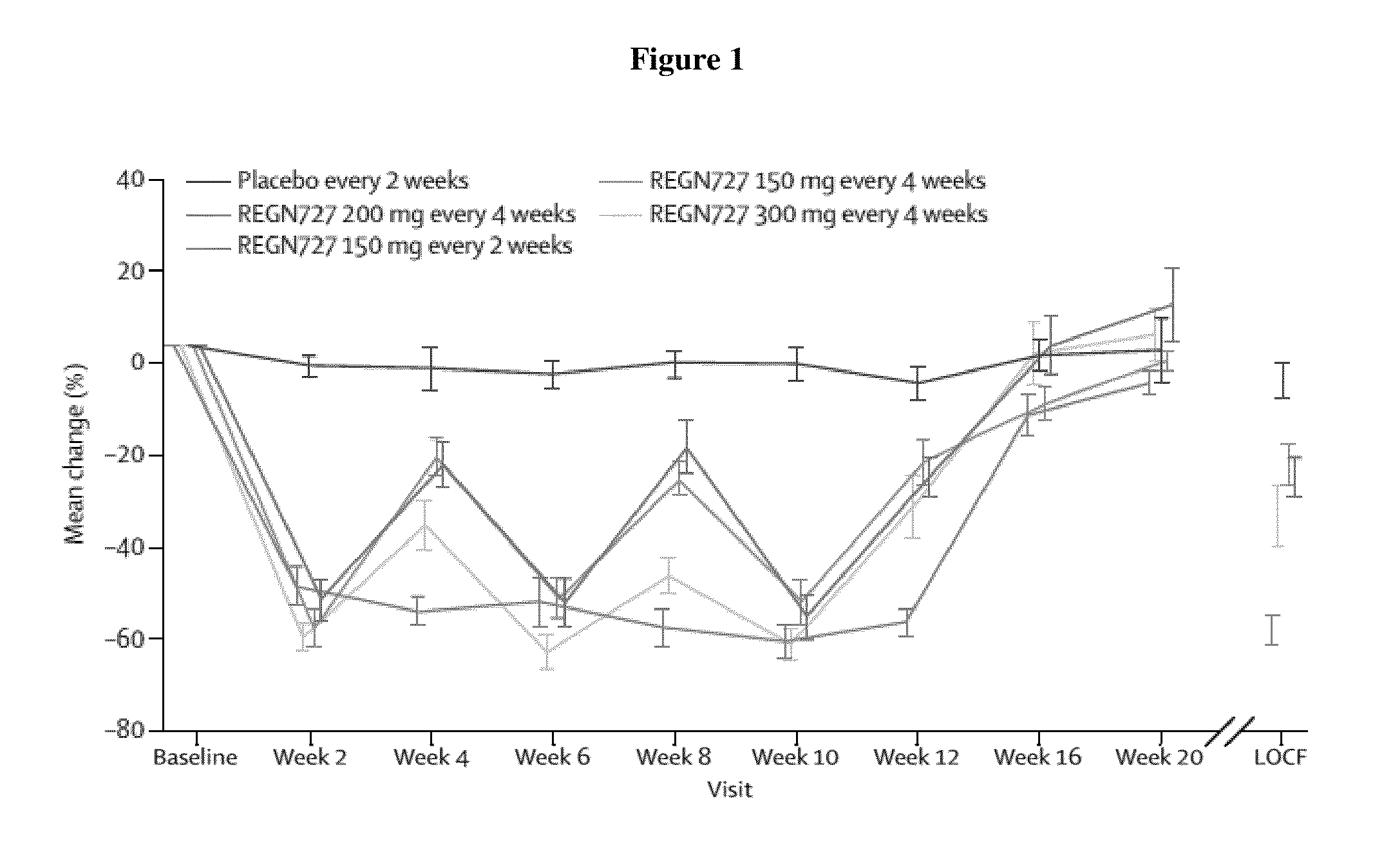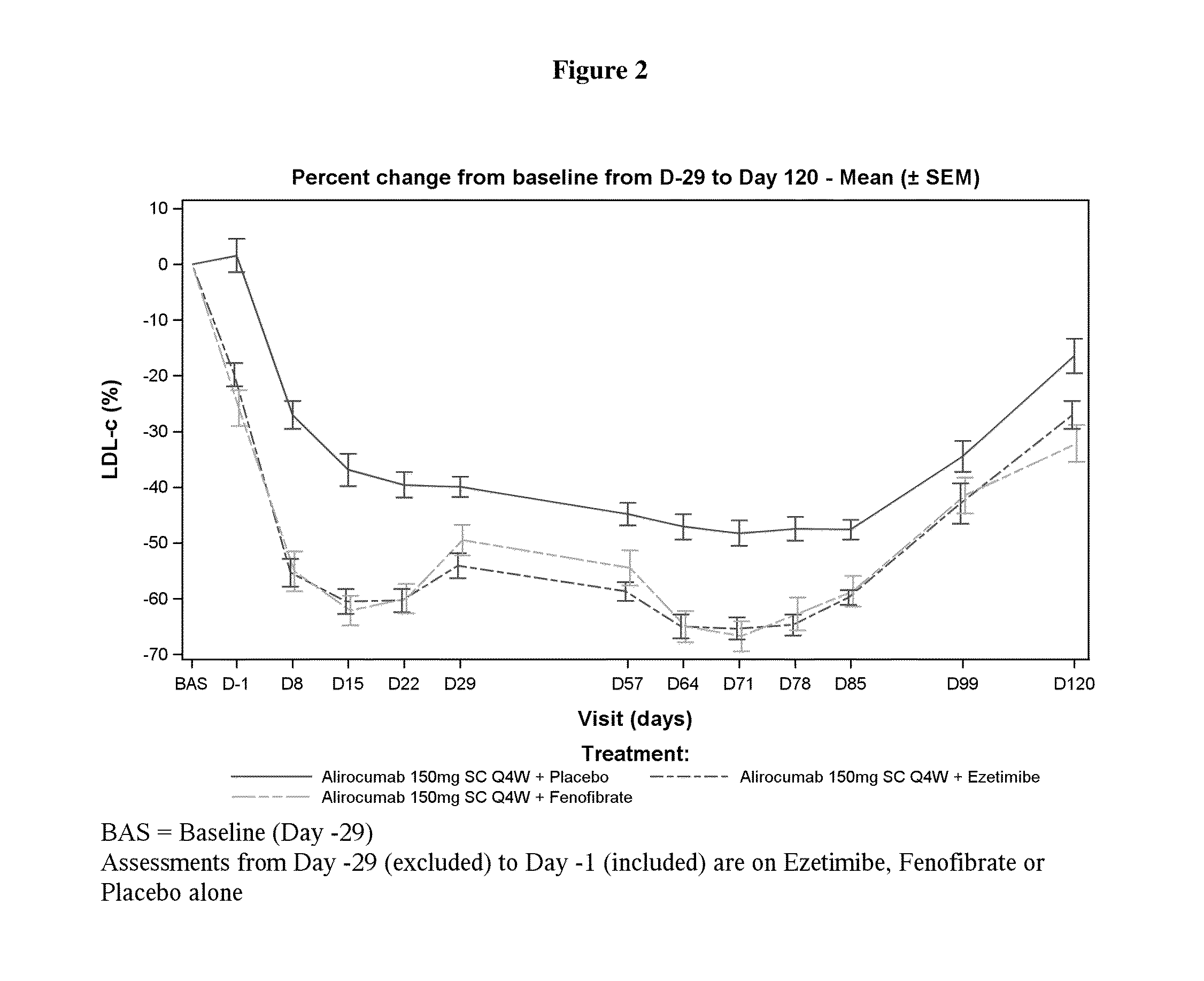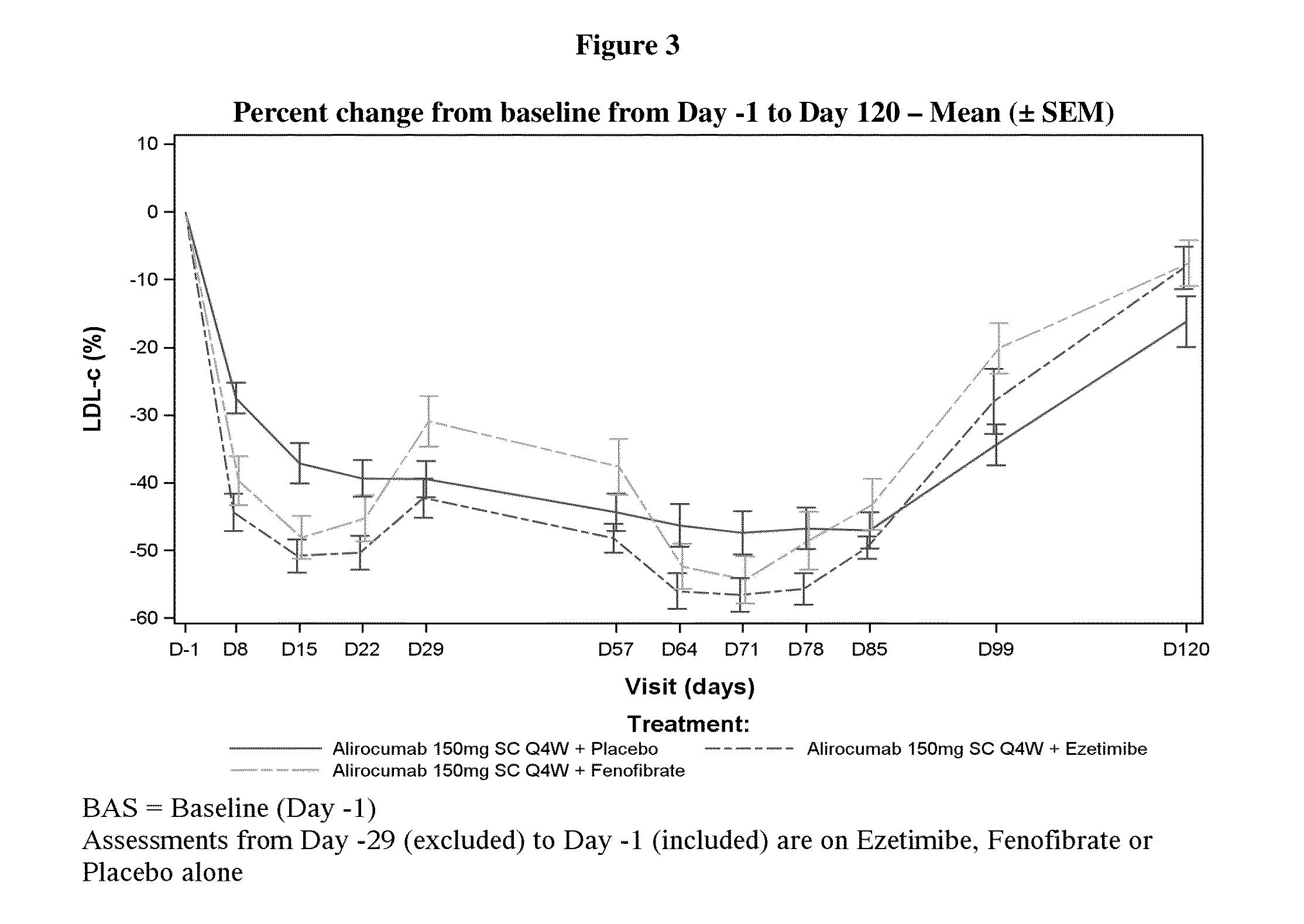Dosing regimens for use with pcsk9 inhibitors
- Summary
- Abstract
- Description
- Claims
- Application Information
AI Technical Summary
Benefits of technology
Problems solved by technology
Method used
Image
Examples
example 1
Generation of Human Antibodies to Human PCSK9
[0162]Human anti-PCSK9 antibodies were generated as described in U.S. Pat. No. 8,062,640. The exemplary PCSK9 inhibitor used in the following Examples is the human anti-PCSK9 antibody designated “alirocumab”. Alirocumab has the following amino acid sequence characteristics: heavy chain variable region (HCVR) comprising SEQ ID NO:90; light chain variable domain (LCVR) comprising SEQ ID NO:92; heavy chain complementarity determining region 1 (HCDR1) comprising SEQ ID NO:76; HCDR2 comprising SEQ ID NO:78; HCDR3 comprising SEQ ID NO:80; light chain complementarity determining region 1 (LCDR1) comprising SEQ ID NO:84; LCDR2 comprising SEQ ID NO:86; and LCDR3 comprising SEQ ID NO:88.
[0163]Alirocumab is a fully human monoclonal antibody that binds proprotein convertase subtilisin kexin type 9 (PCSK9). Proprotein convertase subtilisin kexin type 9 belongs to the subtilisin family of serine proteases and is highly expressed in the liver. PCSK9 is ...
example 2
A Randomized, Partial Blind, 3 Parallel Groups Study of the Pharmacodynamic Profile of Alirocumab Administered as Multiple 150 mg Subcutaneous Doses, Either Alone or on Top of Ezetimibe or Fenofibrate Administered as Multiple Oral Doses in Healthy Subjects
Introduction
[0164]A phase 1 clinical trial was conducted to evaluate the pharmacodynamics and safety of an anti-PCSK9 antibody, alirocumab, in healthy subjects. The primary objective of the study was to assess the pharmacodynamic profile of alirocumab administered either alone or on top of ezetimibe or fenofibrate, based on low density lipoprotein cholesterol (LDL-C). The secondary objectives of the study were: 1) to assess the pharmacodynamic profile of alirocumab administered either alone or on top of ezetimibe or fenofibrate, based on other lipid parameters, 2) to assess the pharmacokinetic profile of alirocumab administered either alone or on top of ezetimibe or fenofibrate, 3) to document exposure to ezetimibe and fenofibrate,...
example 3
A Randomized, Double-Blind, Placebo-Controlled, Parallel-Group Study Evaluating the Efficacy and Safety of Alirocumab in Patients with Primary Hypercholesterolemia Not Treated with a Statin
Selection of Dose
[0220]Based on the results of studies carried out with statin as background therapy, the Q2W dosing regimen is appropriate to maintain constant LDL-C lowering throughout the interdosing interval in statin-treated patients, with the maximum efficacy at 12 weeks provided by the 150 mg Q2W dosing. However, for many patients, the magnitude of effect observed with the 150 mg Q2W dose may not be needed to achieve the target LDL-C goal, and starting with a lesser dose may be undertaken.
[0221]The 150 mg Q4W dosing regimen for alirocumab that will be evaluated in this study is based on the longer duration of action observed in patients not receiving concomitant statin. A statin-stimulated increased production of PCSK9 may affect the duration of action of alirocumab, because higher rates of...
PUM
| Property | Measurement | Unit |
|---|---|---|
| Time | aaaaa | aaaaa |
| Time | aaaaa | aaaaa |
| Mass | aaaaa | aaaaa |
Abstract
Description
Claims
Application Information
 Login to View More
Login to View More - R&D
- Intellectual Property
- Life Sciences
- Materials
- Tech Scout
- Unparalleled Data Quality
- Higher Quality Content
- 60% Fewer Hallucinations
Browse by: Latest US Patents, China's latest patents, Technical Efficacy Thesaurus, Application Domain, Technology Topic, Popular Technical Reports.
© 2025 PatSnap. All rights reserved.Legal|Privacy policy|Modern Slavery Act Transparency Statement|Sitemap|About US| Contact US: help@patsnap.com



